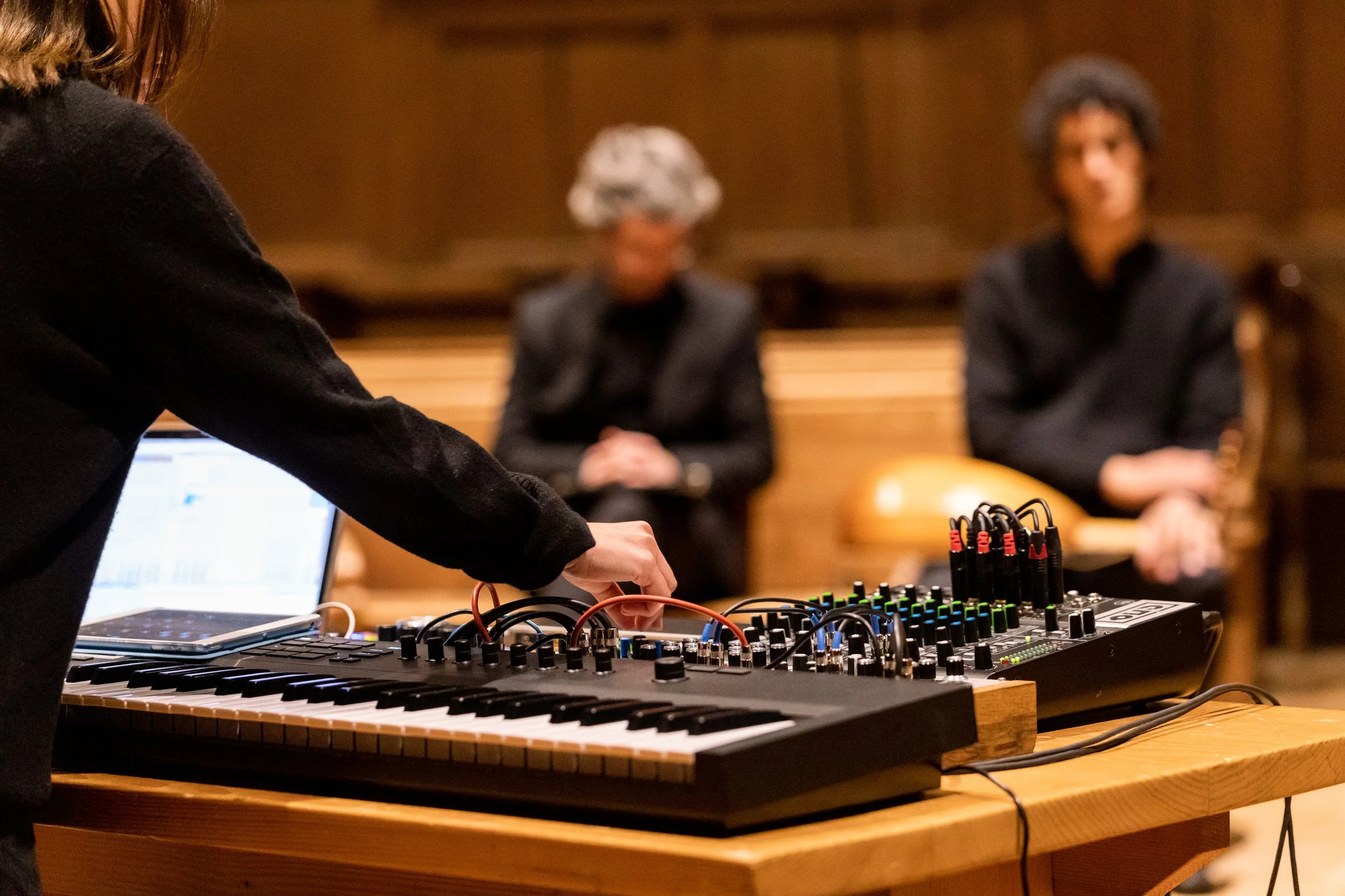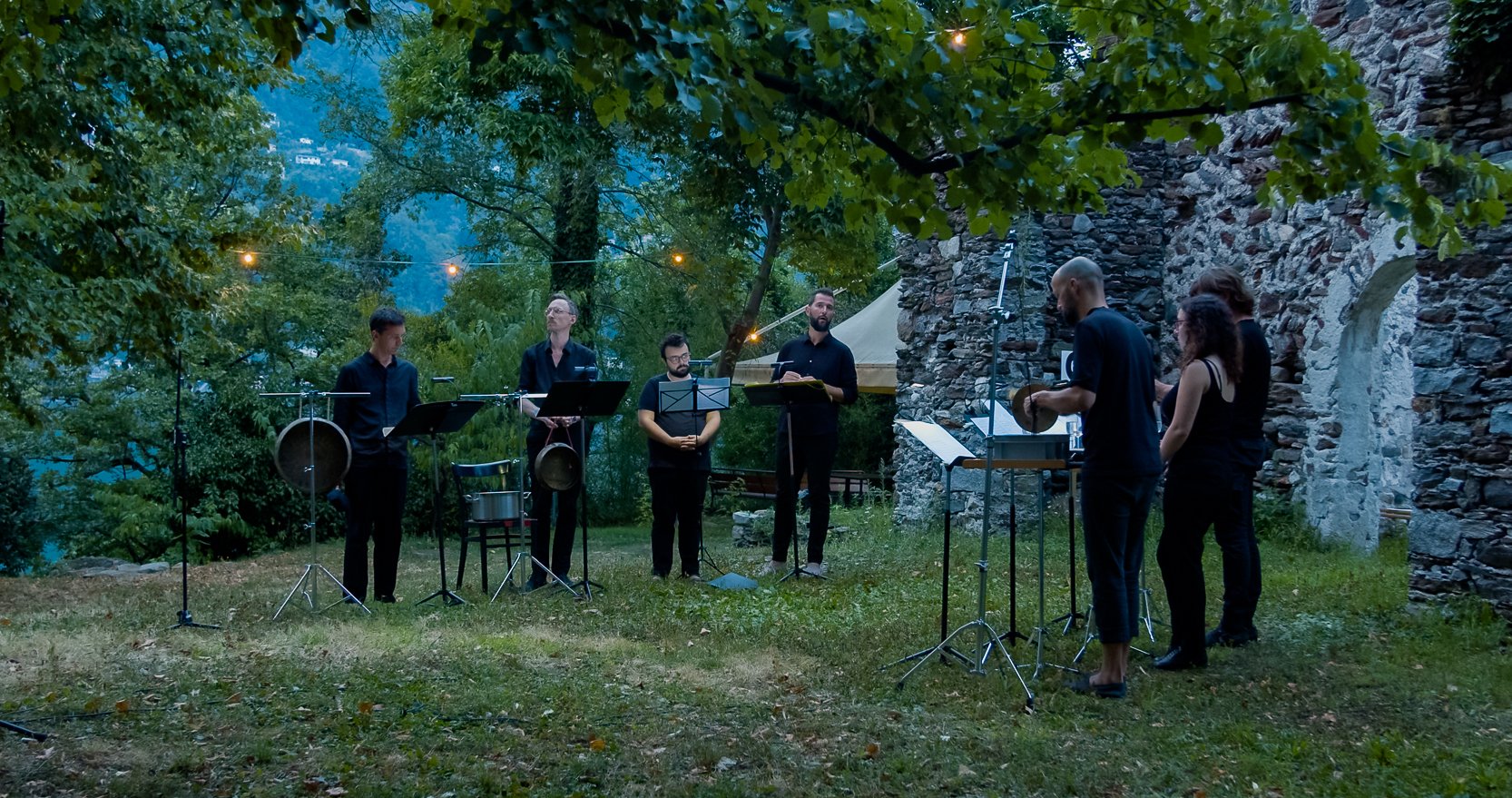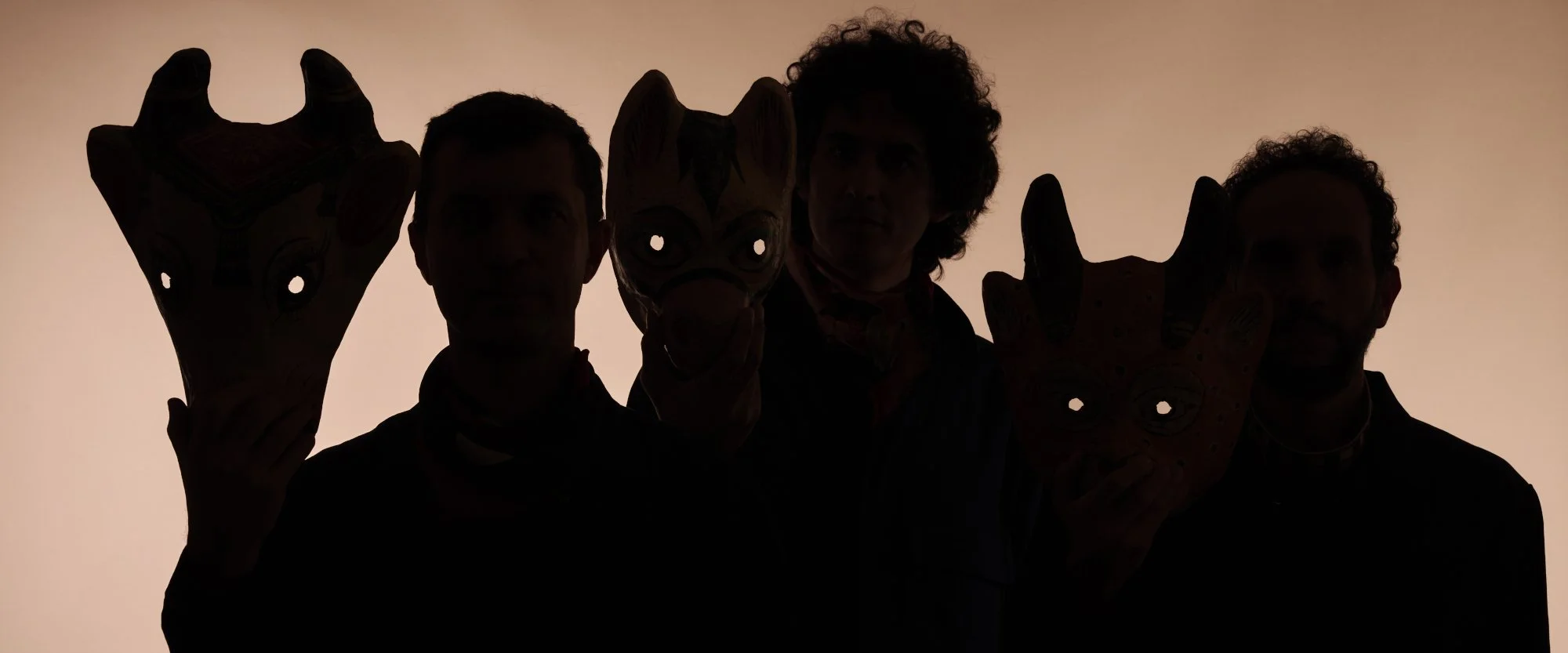
*
abbaye sans dieu
ensemble sans maître
liberté sans limites
optimisme sans raideur
*
passé sans feu
miroir sans reflet
érudit sans copie
ancienne sans archaïsme
actuelle sans vertige
*
utopie sans pudeur
profane sans vergogne
ambiguïté sans retenue
plaisir sans honte
*
création sans dogmes
jeu sans règles
tentatives sans comptes
pratique sans frontières
Thélème*
I ENSEMBLE DE MUSIQUE LIBRE I
Thélème* réunit depuis 2013 des musicien.ne.s souhaitant proposer une interprétation ouverte et originale de la musique ancienne. L'ensemble rassemble, autour de la voix et du luth, des instruments d’époques variées – violes de gambe, saxophones, ondes Martenot ou synthétiseurs modulaires – et s'associe à des auteur.rice.s, comédien.ne.s, danseur.euse.s, chorégraphes et esprits créatifs en tous genres. Thélème explore ainsi un territoire musical mouvant avec le désir d’inventer un langage cohérent et de proposer de nouvelles perspectives d’écoute aux antipodes du muséal.
Attaché au répertoire polyphonique de la Renaissance, l'ensemble s'intéresse allègrement à la musique profane, portée au XVIème siècle par le développement de l'imprimerie musicale. Thélème se passionne pour les contextes et les usages qui ont permis à ces œuvres de voir le jour. Étrangère à toute forme concertante, la musique profane est à l'origine un divertissement privé destiné avant tout à réjouir ses interprètes. Le sens de cette pratique devient matière propice à l'émergence de nouvelles formes, subversives et toujours placées sous le signe du plaisir. Nulle intention de reproduire à l'identique ces œuvres profanes d'avant-garde qui mettent en lumière les contrastes de la Renaissance, entre élégance et humour, délicatesse et obscénité : il s'agit de faire entendre cette musique aujourd'hui, de conjuguer sa modernité au présent par le mélange des genres, le décalage ou l'impertinence. Thélème s'empare du passé en entretenant un dialogue vivant avec les œuvres anciennes et cultive un anachronisme fécond.
—
L'album « Baisiez Moy » (Aparté) a été récompensé en 2022 du prestigieux Gramophone Award (Early Music).
I ENGLISH I
Founded in 2013 by Jean-Christophe Groffe, Thélème brings together musicians from the Schola Cantorum Basiliensis who specialise in the interpretation of early music and are keen to explore it from new perspectives. The ensemble takes its name from the abbey described by Rabelais at the end of Gargantua, where good companions share the pleasure of "reading, writing, singing, and playing harmonious instruments", while respecting this one rule: "Fay ce que voudras".
It is in the spirit of this motto that Thelem maintains a lively dialogue with the works of the Renaissance, and makes them resonate with our time. Thus, the voices of Julien Freymuth, Lior Leibovici, Ivo Haun and Jean-Christophe Groffe, accompanied by Ziv Braha on the lute, are readily combined with the timbres of violas da gamba, ondes Martenot, saxophones or synthesizers; In addition, several recordings include compositions by contemporary artists, which are all "firsts" offering new listening possibilities for early music; authors, actors, dancers and choreographers also contribute to the ensemble's projects.
Thélème's work with young audiences is a natural extension of this ever-curious exploration, and of an experience of music conceived above all as an encounter. Before joining Aparté, thélème recorded a Janequin trilogy for Coviello Classics, which was very well received by the international press.
—
Thélème received the prestigious Gramophone Award (Early music) 2022 for the album "Baisiez moy" (Aparté).
I DEUTSCH I
Das 2013 von Jean-Christophe Groffe gegründete Ensemble Thélème vereint Musiker aus der Schola Cantorum Basiliensis, die sich auf die Interpretation alter Musik spezialisiert haben und neugierig sind, diese aus neuen Perspektiven zu erforschen. Das Ensemble hat seinen Namen von der Abtei, die Rabelais am Ende von Gargantua beschreibt, wo gute Gefährten das Vergnügen teilen, "zu lesen, zu schreiben, zu singen, harmonische Instrumente zu spielen", und dabei die eine Regel befolgen: "Fay que voudras".
Im Geiste dieses Mottos pflegt thélème einen lebendigen Dialog mit den Werken der Renaissance und lässt sie in Resonanz mit unserer Zeit treten. So verbinden sich die Stimmen von Julien Freymuth, Lior Leibovici, Ivo Haun und Jean-Christophe Groffe, begleitet von Ziv Braha an der Laute, gerne mit den Klangfarben von Gamben, Martenot-Wellen, Saxophonen oder Synthesizern; Darüber hinaus enthalten mehrere Aufnahmen Kompositionen zeitgenössischer Künstler, die als "Premieren" neue Hörmöglichkeiten für die Alte Musik eröffnen; Autoren, Schauspieler, Tänzer und Choreographen tragen ihren eigenen Beitrag zu den Projekten des Ensembles bei.
Die Auftritte von Thélème für ein junges Publikum sind die natürliche Fortsetzung dieser immer neugierigen Erkundung und einer Musikerfahrung, die vor allem als Begegnung gedacht ist. Bevor thélème zu Aparté kam, nahm es für Coviello Classics eine Janequin-Trilogie auf, die von der internationalen Presse sehr positiv aufgenommen wurde.
—
Thélème erhielt den renommierten Gramophone Award (Alte Musik) 2022 für das Album "Baisiez moy" (Aparté).









